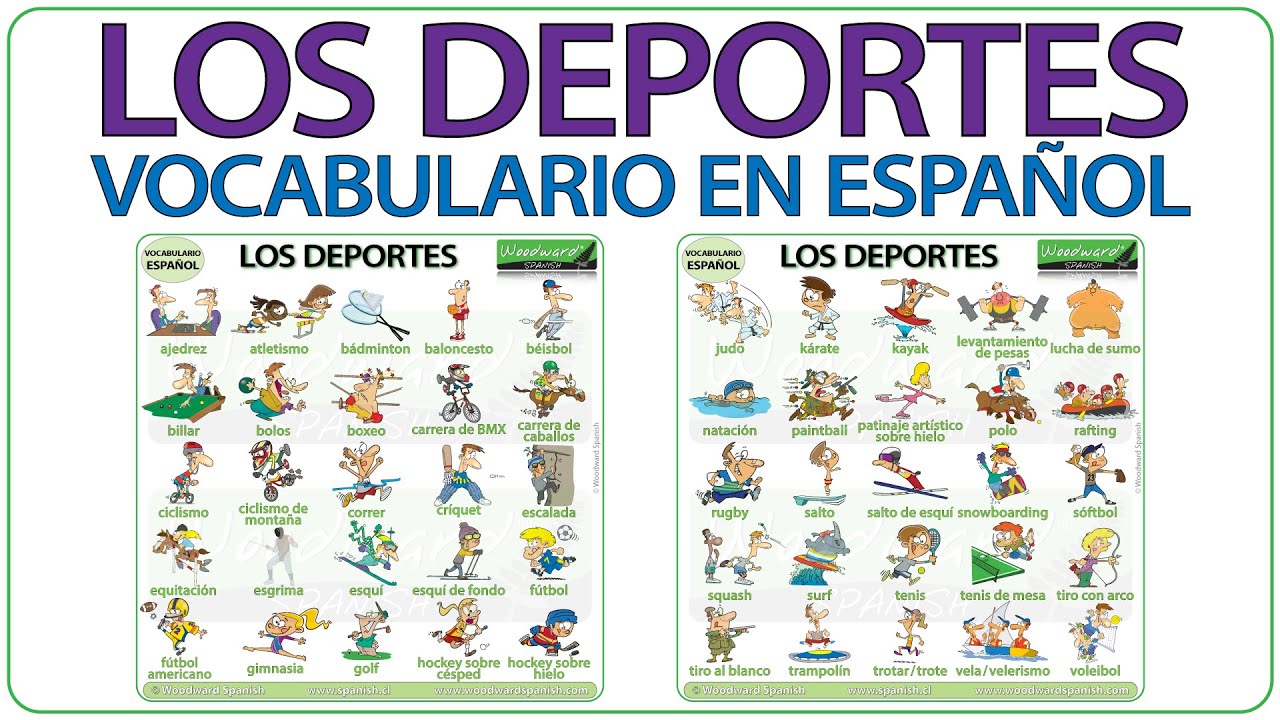Thinking about homeschooling your kids but not sure where to start with the curriculum? You’re not alone. With so many options available, finding the right resources can feel overwhelming. But don’t worry, there are plenty of places to get high-quality homeschool curriculum that fits your needs and budget.
From online platforms to local bookstores, the choices are vast and varied. Whether you’re looking for comprehensive programs or subject-specific materials, you’ll find something that works for you. Let’s explore the best places to get your homeschool curriculum so you can make an well-informed choice and provide the best education for your children.
Key Takeaways
- Variety of Sources: Homeschool curriculum can be sourced from online platforms, local bookstores, community groups, and libraries.
- Customizable Options: Homeschooling enables parents to tailor curriculum based on their child’s learning style, interests, and family schedule.
- Accreditation and Reviews: Evaluate curriculum quality through accreditation status and user reviews to ensure it meets educational standards and suits your child’s needs.
- Budget-Friendly Choices: Utilize free resources like Khan Academy and low-cost packages from providers such as Time4Learning and The Good and the Beautiful to manage expenses.
- Tailored Learning: Focus on your child’s learning style (visual, auditory, kinesthetic, reading/writing) and select adaptable curriculums for a personalized educational experience.
Understanding Homeschool Curriculum Needs
Identifying your homeschool curriculum needs is the first step. Parents must understand what subjects and materials their children need. Consider the following when assessing your homeschool curriculum needs:
Key Elements:
Core Subjects: Essential academic areas such as math, science, language arts, and social studies.
Electives: Additional subjects like art, music, and physical education that enrich the curriculum.
Learning Styles: Recognize if your child is a visual, auditory, or kinesthetic learner to tailor the curriculum accordingly.
State Requirements: Compliance with local education laws and standards to ensure the chosen curriculum meets mandatory guidelines.
Grade Level: Ensure the material is appropriate for your child’s current educational stage.
Defining Specific Needs
- Assess Learning Objectives: Determine the educational goals for the academic year. List what skills and knowledge should be achieved by the end.
- Consider Child’s Interests: Incorporate subjects or topics that align with your child’s passions. This increases engagement and retention.
Adapting Curriculum
Homeschooling allows for a customized approach. Here’s how to adapt curriculum to fit your child’s needs:
- Flexible Scheduling: Develop a timetable that suits your family’s lifestyle. Incorporate breaks and free time for a balanced routine.
- Varied Resources: Use textbooks, online courses, educational videos, and hands-on activities to maintain variety.
- Assessment Methods: Employ regular quizzes, projects, and discussions to gauge understanding. Adapt based on performance.
Resources for Homeschool Curriculum
Here’s a list of where you can find suitable curriculum options:
- Online Platforms: Websites like Khan Academy, Coursera, and Time4Learning offer comprehensive resources.
- Local Bookstores: Many bookstores have a section dedicated to educational materials.
- Community Groups: Join local homeschooling groups to exchange resources and get recommendations.
- Libraries: Public libraries often provide free access to textbooks and study guides.
Action Points
- Create a Checklist: List necessary subjects, resources, and goals.
- Research: Spend time evaluating different curriculum options.
- Seek Advice: Reach out to experienced homeschooling parents and educators for tips.
Understanding your homeschool curriculum needs involves assessing learning objectives, adapting materials, and utilizing various resources to provide a well-rounded education.
Types Of Homeschool Curriculum Providers
You have several options when searching for homeschool curriculum. Knowing the types of providers helps make informed choices.
Online Curriculum Providers
Online Platforms
These providers offer digital courses for various subjects and grade levels. Examples include Khan Academy, ABCmouse, and Time4Learning.
Subscription Services
Subscription-based platforms provide ongoing access to curriculum content. Examples include IXL and Study.com.
Accredited Programs
Some online providers offer accredited courses recognized by educational institutions. Providers like K12 and Connections Academy fall in this category.
Local Education Stores
Bookstores
Local bookstores often carry a range of homeschool textbooks and resources. Stores like Barnes & Noble have dedicated homeschooling sections.
Teacher Supply Stores
Stores specialized in educational materials, such as Lakeshore Learning, provide various teaching aids and curriculum books.
Specialty Shops
Some stores focus exclusively on homeschooling. They offer curriculum packages and kits tailored for home education.
Homeschooling Co-ops
Collaborative Learning Groups
Homeschooling co-ops are groups where families collaborate to educate their children. This offers social interaction and shared teaching responsibilities.
Resource Sharing
Families in co-ops often share curriculum resources, which can reduce costs and provide variety.
Workshops and Classes
Many co-ops offer workshops and subject-specific classes, allowing children access to diverse educational experiences.
Popular Online Resources
Several online resources offer comprehensive homeschool curricula, making it easier for you to find what fits your family’s needs.
Established Education Websites
Established education websites provide extensive resources for homeschooling families:
Khan Academy
An online platform offering free educational lessons and practice exercises across a wide range of subjects like math, science, and history. It includes personalized learning dashboards for tracking progress.
Coursera
A global platform providing courses from renowned universities. It offers classes in various subjects, from elementary to advanced levels, and includes options for obtaining certificates.
EdX
Similar to Coursera, EdX offers a wide range of courses from top universities and institutions. It provides both free and paid courses that can enhance your homeschool curriculum.
Specialized Homeschool Platforms
Specialized homeschool platforms cater specifically to homeschooling families, offering tailored content and flexible learning solutions:
Time4Learning
An online curriculum provider offering structured programs for grades PreK-12. It includes interactive lessons, printable worksheets, and detailed reporting for parents.
Easy Peasy All-in-One Homeschool
A free online platform providing a complete, organized curriculum. It covers all grade levels and includes a variety of subjects with daily lesson plans.
Homeschool Planet
An online planner that provides scheduling tools, lesson planning, and record-keeping solutions. It supports integration with numerous curricula and educational resources, making homeschooling more organized.
Action Point: Use Online Resources
Apply these online resources to create a well-rounded homeschool curriculum. Begin with established educational websites for a broad range of subjects, then incorporate specialized platforms to tailor the curriculum to fit your specific needs.
Evaluating Curriculum Quality
When selecting a homeschool curriculum, evaluating its quality is essential to ensure it meets educational standards and fits your child’s learning needs.
Accreditation And Standards
Accreditation ensures a curriculum adheres to educational standards. Look for programs accredited by reputable organizations. Accreditation can validate the quality and rigor of the educational materials, ensuring they meet state or national guidelines.
Key Terms:
- Accreditation: Certification that a curriculum meets established educational standards.
- Standards: Benchmarks set by educational authorities to ensure learning materials cover essential skills and knowledge.
Steps To Evaluate Accreditation:
- Identify accrediting bodies recognized in your region, such as Cognia or the National Independent Private Schools Association (NIPSA).
- Verify the curriculum’s accreditation status by visiting the accrediting body’s website.
- Compare the curriculum with state or national educational standards to ensure it aligns with required competencies.
User Reviews And Testimonials
User reviews provide insights into the practical aspects of a curriculum. Real experiences from other homeschooling families can highlight strengths and weaknesses.
Key Terms:
- User Reviews: Personal evaluations shared by individuals who have used the curriculum.
- Testimonials: Positive feedback from satisfied users, often highlighting specific benefits.
- Read reviews on reputable homeschooling forums or educational websites.
- Look for patterns in feedback, such as common praises or recurring issues.
- Pay attention to testimonials on the curriculum provider’s website, but also seek independent opinions for a balanced view.
Action Point:
Combining accreditation status with user reviews helps create a comprehensive understanding of a curriculum’s quality. Use this information to choose a program that supports and enriches your child’s learning journey effectively.
Budget-Friendly Options
For many parents, finding cost-effective homeschool curriculum alternatives is essential. There are numerous resources available that offer comprehensive educational materials without very costly.
Free Curriculum Resources
Free resources provide an excellent starting point for homeschooling. These platforms offer extensive educational content across various subjects.
- Khan Academy: This platform offers a wide range of subjects, including math, science, and humanities, through video lessons and practice exercises.
- Easy Peasy All-in-One Homeschool: It provides a complete, Christian-based curriculum covering all grade levels, organizing lessons by day and subject.
- Ambleside Online: Focuses on a Charlotte Mason-style education, offering a structured, free curriculum with reading lists and weekly schedules.
- CK-12 Foundation: Offers free digital textbooks, interactive simulations, and exercises in STEM subjects to enhance learning.
Affordable Curriculum Packages
Affordable packages can also provide structured learning at a reasonable price. These options often include comprehensive guides and materials for various subjects.
- SchoolhouseTeachers.com: For a monthly subscription, you get access to complete curriculum packages for preschool through high school, covering numerous subjects with printable lessons and video content.
- The Good and the Beautiful: This offers low-cost, high-quality curriculum options with a strong emphasis on character building and faith-based education, combining subjects for more integrated learning.
- Time4Learning: Provides an affordable, flexible online curriculum with interactive lessons, which are accessible at different grade levels for a monthly fee.
- BookShark: A packet-focused curriculum that blends high-quality books and hands-on activities, offering complete subject packages that can be tailored to specific needs and budgets.
By leveraging these budget-friendly options, you ensure a comprehensive educational experience without incurring excessive costs. Explore each option to find the best fit for your homeschooling needs.
Tips For Choosing The Right Curriculum
Choosing the right homeschool curriculum can significantly influence your child’s educational experience. By considering these factors, you can tailor the curriculum to your child’s needs and ensure a successful homeschooling journey.
Tailoring To Your Child’s Learning Style
Understanding how your child learns best is crucial when selecting a homeschool curriculum.
Learning Styles:
- Visual Learners: Prefer seeing information. Use curricula with diagrams, charts, illustrations.
- Auditory Learners: Grasp information better through listening. Opt for audiobooks, lectures, discussion-based content.
- Kinesthetic Learners: Need hands-on activities. Choose interactive projects, experiments, physical activity integration.
- Reading/Writing Learners: Prefer interacting with text. Select traditional textbooks, reading assignments, written exercises.
Ensuring Flexibility And Adaptability
Choosing a curriculum that allows adjustments ensures it stays relevant to your child’s evolving educational needs.
- Adaptable Schedules: The ability to modify schedules. Facilitates personalized pacing and accounts for life events or changes.
- Multi-Grade Resources: Materials spanning multiple grades. Useful for children working at different levels in various subjects.
- Modular Lessons: Lesson segments that stand alone. Means you can skip sections or focus intensively where needed.
- Customizable Assessments: Tailored tests or quizzes. Allows evaluations to match your child’s proficiency and growth areas.
By focusing on your child’s unique learning style and selecting a flexible and adaptable curriculum, you can create a rich and effective homeschooling environment.
Conclusion
Embarking on the homeschooling journey can feel overwhelming but with the right resources and strategies you can create a nurturing and effective learning environment for your child. By understanding your child’s unique learning style and incorporating flexible and adaptable curriculum options you’ll set the stage for success. Remember to explore various providers and online resources to find what best suits your family’s needs. With careful planning and thoughtful choices homeschooling can be a rewarding experience that fosters growth and a love of learning.
Frequently Asked Questions
What is the first step in starting homeschooling?
The first step in starting homeschooling is understanding your child’s learning style and needs. This will help you select the appropriate curriculum and plan a flexible schedule.
How do I choose the right homeschool curriculum?
Choose a curriculum by considering your child’s learning style (visual, auditory, kinesthetic, reading/writing), ensuring it offers flexibility, and checking for customizable resources and assessments.
Can I adapt the homeschool curriculum as needed?
Yes, a good curriculum should be adaptable. Look for resources that offer flexible schedules, modular lessons, and multi-grade materials to tailor the education to your child’s pace and interests.
What are some good online resources for homeschooling?
Popular online resources include Khan Academy, Coursera, Time4Learning, and Homeschool.com, which offer a variety of courses and materials suited for different learning needs.
How do I ensure the curriculum covers all necessary subjects?
Review the curriculum details to ensure it includes core subjects like math, science, language arts, and social studies. Utilize online reviews and forums for additional insights.
Are there specific curricula for different learning styles?
Yes, many curricula are designed for specific learning styles. Research and choose ones that offer visual aids, hands-on activities, or auditory instructions based on your child’s preference.
Should I follow a strict homeschool schedule?
Homeschooling allows for flexibility. It’s important to have a structured plan, but be open to adjusting schedules to better fit your child’s learning pace and needs.
How do I find multi-grade homeschooling resources?
Look for curricula that mention being suitable for multiple grades. Visit websites like Sonlight, My Father’s World, and Ambleside Online which offer multi-grade teaching materials and methods.
What factors are important for effective homeschooling?
Key factors include understanding your child’s learning style, selecting adaptable curricula, using diverse resources, and maintaining a flexible yet structured schedule to accommodate your child’s needs.
Is it necessary to have formal assessments in homeschooling?
While not always required, incorporating customizable assessments helps track your child’s progress and identify areas needing improvement. Many curricula offer flexible assessment tools.
How can homeschooling be more engaging for my child?
Use varied resources like educational games, field trips, practical experiments, and multimedia tools. Align lessons with your child’s interests to make learning enjoyable and effective.


